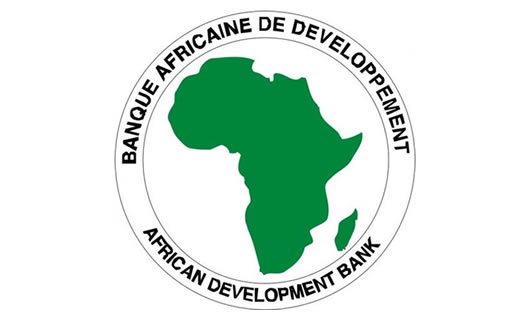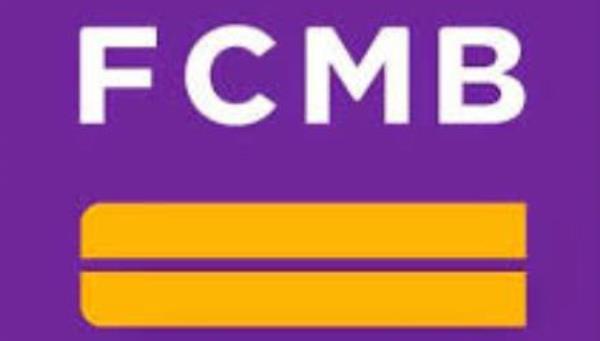E-Financial
EIB, AfDB to invest US$70m in Development Bank of Nigeria

The European Investment Bank and the African Development Bank have agreed to support the creation of the new Development Bank of Nigeria to strengthen lending for business and agriculture investment in the country.
The European Investment Bank has finalized a US $20-million equity stake in the new financing institution, alongside US $50-million equity participation from the African Development Bank.
The Development Bank of Nigeria has been created by the Federal Government of Nigeria to address financing challenges hindering private sector investment in the country. The Bank is called to play an important and catalytic role in providing funding and risk sharing facilities to micro, small and medium enterprises as well as small corporate.
“The Development Bank of Nigeria will overcome the funding gap in the micro-, small- and medium-scale enterprises space and help businesses unlock opportunities across Nigeria. DBN’s ambition is strengthened by the financial and technical support of international partners, including the European Investment Bank and African Development Bank.
The new institution builds on international experience and uses a business model that has demonstrated proven success to enhance private-sector investment across Africa and around the world where other financing options are inadequate or absent,” said Tony Okpanachi, Managing Director of the Development Bank of Nigeria.
“Private sector businesses are critical to the development of the Nigerian economy as they possess huge potential for employment generation and output diversification. Nevertheless, there has been under-performance of these businesses and this has undermined their contribution to economic growth.
Among the issues affecting their performance, the shortage of finance, particularly investment finance, occupies a very central position.
The Development Bank of Nigeria is expected to contribute to mobilizing significant long-term financing to an important yet underserved sector with high development potential,” said Stefan Nalletamby, Director of the Financial Sector Development Department at the African Development Bank.
“New private sector investment is crucial to create jobs and enable business to expand and limited access to long-term financing holds back economic growth. The European Investment Bank is pleased to support the new Development Bank of Nigeria to strengthen private-sector investment in Africa’s largest economy.
We look forward to continued close cooperation with Nigerian and international partners to ensure that once fully operational the new Development Bank of Nigeria can help harness the country’s economic potential,” said Ambroise Fayolle, Vice-President of the European Investment Bank (EIB).
“The European Union is committed to supporting private-sector investment in Nigeria. The new backing for the Development Bank of Nigeria by both the European Investment Bank, the bank of the European Union and the African Development Bank, with 13 EU member state shareholders, will make a clear contribution to tackling the lack of access to credit by entrepreneurs and businesses across the country.
“With more investment, we hope to promote a vibrant economy and stimulate growth, employment and increase opportunities, especially for youth,” said Ambassador Ketil Karlsen, Head of the European Union Delegation to Nigeria and the Economic Community of West African States (ECOWAS).”
Addressing the investment gap holding back private-sector investment
At present, new investment essential for companies to expand and create jobs is hindered by limited access to commercial banks. It is estimated by the Development Bank of Nigeria that only 5% of the 37 million entrepreneurs and small businesses in Nigeria that contribute to 50% of GDP can access credit in the financial system.
Other international financial institutions, including the World Bank, Germany’s KfW and the French Agence française de development (AFD) will also support the new bank alongside backing from the Federal Government of Nigeria.
E-Financial
CITN Tasks New Tax Professionals to Shape Fiscal Policies for Efficient Tax System

Mr. Samuel Agbeluyi, the President of the Chartered Institute of Taxation of Nigeria, has charged incoming tax professionals to see their roles as critical to shaping Nigeria’s fiscal policies and building a more efficient tax system.

Agbeluyi gave the charge on Tuesday at the opening of the April 2025 Pre-Induction Orientation Programme held in Abuja.
While addressing participants, the CITN President said the orientation marked not just a personal achievement for inductees but the beginning of a greater national responsibility.
According to him, “Ultimately, it is expected that at the end of this programme and the induction thereafter, the number of tax professionals in the roll call of the CITN and indeed Nigeria would grow.
“Most importantly, more professionals would be added to the struggle of building an efficient and effective tax system in Nigeria, whilst influencing government fiscal policies and adding immense value to various stakeholders.”
Agbeluyi stated that the institute’s charter empowers it to determine the standard of knowledge and skills required to become a professional in the field, adding that the training was a deliberate step towards producing competent tax administrators capable of delivering value in the Nigerian economy.
He also noted that facilitators had been carefully selected from among experienced tax professionals and administrators to guide inductees using practical scenarios.
In her remarks, the Deputy Director of the CITN Tax Academy, Mrs Yetunde Suleiman, said the training was designed to expose participants to key developments in national and international tax administration, as well as emerging issues in the digital economy.
She noted that taxation remained central to Nigeria’s economic development and urged the inductees to take their training seriously in light of growing challenges in the country’s tax system, such as evasion, ambiguity of laws and high compliance costs.
Suleiman said, “There is a continuous need to produce, train and unleash qualified tax professionals to tackle these hydra-headed tax challenges.”
She urged participants to approach the sessions with enthusiasm, noting that the knowledge acquired would prepare them to become ambassadors of the institute and sound professionals equipped to drive reform in the tax space.
E-Financial
FCMB Capital Markets Leads ₦11.85bn GLNG Bond for LNG Plant Expansion

FCMB Capital Markets Ltd. successfully led the issuance of GLNG Funding SPV Plc’s ₦11.85 billion 10-Year Series 2 Senior Guaranteed Fixed Rate Infrastructure Bond, which closed in February. This milestone underscores investor confidence in Nigeria’s clean energy transition.

The bond, issued by GLNG Funding SPV Plc and sponsored by Green Liquified Natural Gas (GLNG) as part of its capital-raising plans, is a key step in financing the construction of a mini-LNG plant with a liquefaction capacity of 200,000 standard cubic meters of gas per day.
The facility will help bridge Nigeria’s power supply gap and offer industries a cleaner, cost-effective alternative to diesel.
The issuance was backed by InfraCredit, an AAA-rated infrastructure credit guarantee firm, and is expected to generate over 500 direct and 2,000 indirect jobs, supporting Nigeria’s sustainable economic growth.
“FCMB Capital Markets remains committed to financing projects that drive clean energy adoption and long-term economic impact,” said Ikechukwu Omeruah, Managing Director, FCMB Capital Markets Limited.
“We appreciate the trust placed in us by GLNG and the invaluable role played by InfraCredit and investors in enabling the successful conclusion of this transaction.”
As gas adoption accelerates in Nigeria, a 2022 Clarke Energy report estimates that manufacturers could save up to 30% by switching to gas from the grid and as much as 80% compared to diesel.
FCMB Capital Markets, a part of FCMB Group, has been instrumental in raising over ₦3 trillion in debt and equity capital for leading corporate organizations in Nigeria over the past five years, reinforcing its position as a key player in the country’s capital markets.
E-Financial
How Nigerian Banks Earned N14.26 Trillion in Interest Income in 2024

Nine leading Nigerian banks collectively generated N14.26 trillion in interest income in 2024, reflecting a 119.55% increase from N6.49 trillion in 2023.

This surge is attributed to the Central Bank of Nigeria’s Monetary Policy Committee raising benchmark interest rates to combat inflation, which reached 34.80% by the end of the year.
Among the banks, Zenith Bank recorded the highest actual income increase, while First Holdco led in percentage growth. Access Holdings, UBA, GTCO, Stanbic IBTC, FCMB Group, Fidelity Bank, and Wema Bank also reported significant gains.
However, a portion of this income was derived from non-performing loans, raising concerns about the sustainability of these earnings.
In contrast, the manufacturing sector faced operational costs of N2.5 trillion, with high interest and energy expenses straining growth. Industry leaders have called for a halt to further rate hikes, warning of potential risks to the real sector’s recovery.
This financial dynamic underscores the contrasting fortunes of Nigeria’s banking and manufacturing sectors. What are your thoughts on these developments?

 Telecom2 days ago
Telecom2 days agoDigital Transformation Remains Africa’s Gateway to Economic Advancement – Adumike

 Telecom2 days ago
Telecom2 days agoPAFON 2.0: Experts Discuss Pathways to Boost Financial Inclusion in Nigeria

 General News2 days ago
General News2 days agoEFCC Clarifies SCUML Certificate Misuse amid CBEX Ponzi Scheme Scandal

 E-Financial2 days ago
E-Financial2 days agoCBN, NGX Group Defend Economic Reforms at Nasdaq

 Telecom1 day ago
Telecom1 day agoMTN Nigeria Faces Class Action Lawsuit over Alleged Data Mismanagement

 Telecom1 day ago
Telecom1 day agoNigeria Hits 1 Terabit Internet Traffic Milestone

 General News1 day ago
General News1 day agoFG to Introduce New Tax Credit Scheme to Replace Pioneer Status Incentive

 E-Financial1 day ago
E-Financial1 day agoFCMB Capital Markets Leads ₦11.85bn GLNG Bond for LNG Plant Expansion























